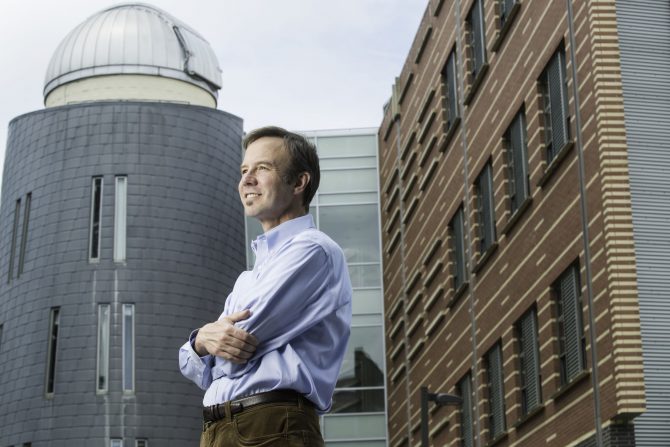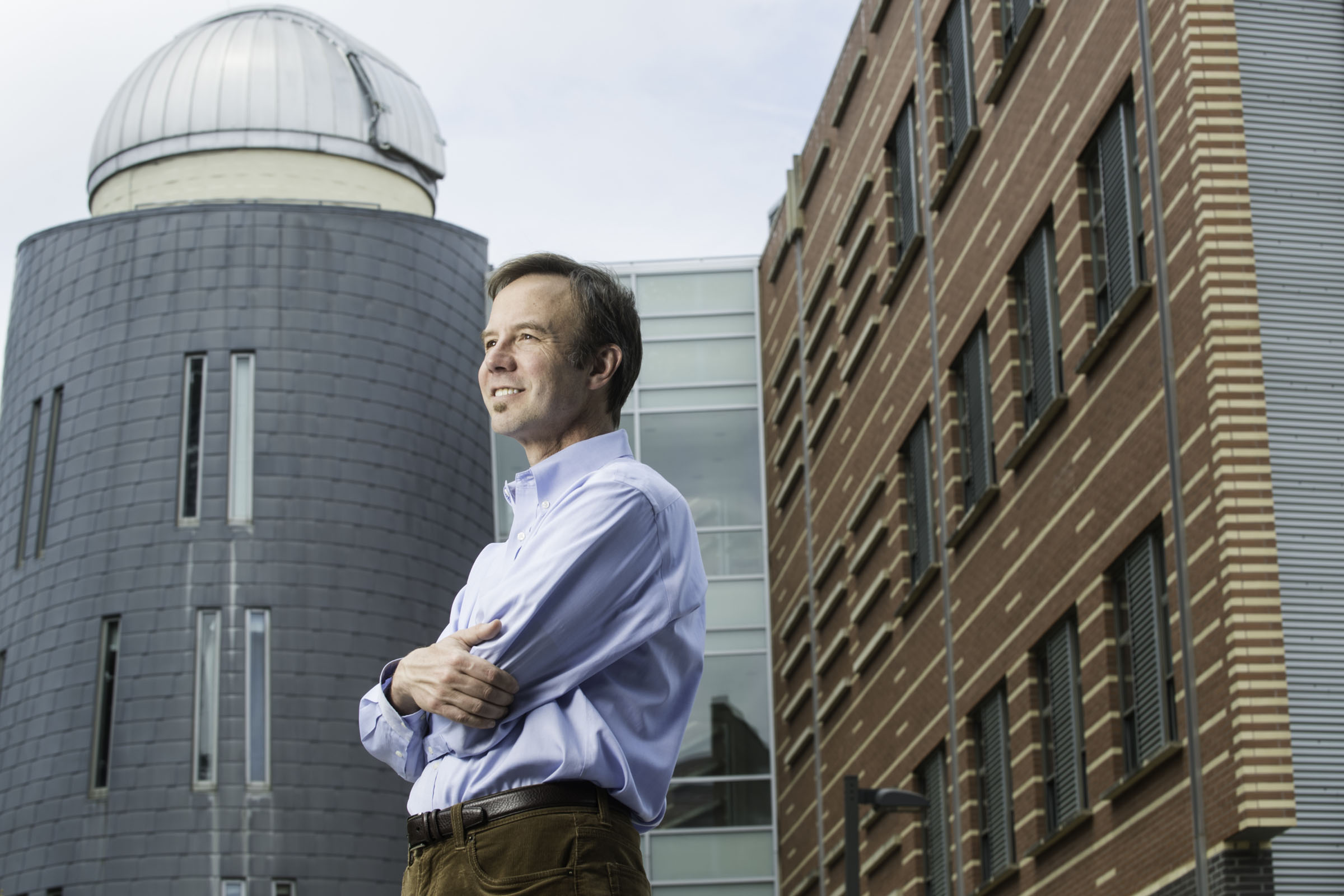
By Michele McDonald
Sean Mallon’s goal is to turn good ideas into great companies.
Mallon joined George Mason University in April as vice president for entrepreneurship and innovation, a newly created position.
Many great ideas started at colleges: Dropbox, Reddit, Snapchat. Colleges are natural incubators for startups—there’s ample access to ideas, time, and resources. What’s often missing is the funding, and a way to bring the ideas to fruition.
That’s where Mallon comes in.
“Ideas on their own don’t get funding,” Mallon says. “Businesses get funding.”
Mallon has 20 years of venture capital and startup experience and most recently oversaw the portfolio of more than 100 companies when he was senior investment director for CIT GAP Funds, a seed- and early-stage technology venture fund within the Center for Innovative Technology.
“Sean is a great addition to our innovation and entrepreneurship capabilities, bringing years of experience helping high-potential startups grow,” says David J. Miller, executive director of George Mason’s Center for Innovation and Entrepreneurship and director of Campus Entrepreneurship Initiatives. “Moreover, Sean’s extensive networks will help Mason innovators make a deeper and more meaningful impact in the region.”
The scope of Mallon’s new position includes identifying, assisting, and encouraging entrepreneurial activity within the Mason community. New businesses that gain market acceptance also could attract federal funding and outside capital investment, Mallon says.
“We want Mason entrepreneurs to be able to compete on a national and international level,” he says.
Mallon plans to serve as a connection between Mason and the business community.
“When we have a startup that’s far enough along, I could reach out to angel investors,” he says.
Local business leaders already have offered to help guide fledgling entrepreneurs as well as help researchers develop ideas that can move from the lab and into a commercial setting.
“There’s a lot of goodwill in the community to help Mason,” Mallon says.
The university’s wealth of intellectual capital could be a launching point for new ventures. Mason is one of 115 elite institutions conducting research at the highest level as determined by the prestigious Carnegie Classification of Institutions of Higher Education.
Businesses already have spun out of the university, most notably for a Lyme disease diagnostic test. Mason research creates licensing opportunities and Mason’s Office of Technology Transfer is geared to help.
For students, Mason’s new entrepreneurship minor gives them the basics for what it takes to launch their own business and covers topics from finances to marketing to personnel issues. The university’s makerspace, MIX at Innovation Hall, gives student entrepreneurs/inventors a place to create.
“Maybe a first-generation college student wants to learn how to run or expand the family business,” Mallon says.
Graduates with entrepreneurial mindsets can be strong contributors to established companies. Self-starter employees often think, “If I don’t do it, it won’t get done.” As a result, they are frequently the ones who are able to fast-track their careers, Mallon says.
And even well after graduation, there’s time to launch a new venture.
“I think it’s the role of the university to not just prepare these students to go out into the workforce but to give them enough knowledge so that even 10 to 20 years out, they have enough information to start their own business or know where to turn for help,” Mallon says.

